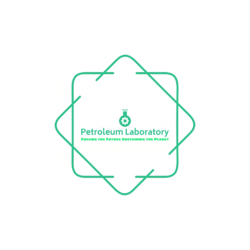Petroleum Refinery Research Laboratory: Difference between revisions
mNo edit summary |
Philimania (talk | contribs) m (It seems that you don't really need a "fate" when the company is still active) |
||
| Line 5: | Line 5: | ||
| type = Research and Development Corporation | | type = Research and Development Corporation | ||
| industry = Oil and Petrochemicals | | industry = Oil and Petrochemicals | ||
| founded = 2023 February 15, Patrolum, Île du Pétrole, Grand Duchy of Japuile | | founded = 2023 February 15, Patrolum, Île du Pétrole, Grand Duchy of Japuile | ||
| founder = Professor Aimeric Chevalier | | founder = Professor Aimeric Chevalier | ||
Revision as of 20:09, 9 August 2023
Laboratoire de recherche sur les raffineries de pétrole (LRRP), commonly known as the Petroleum Refinery Research Laboratory - is a research and development corporation specializing in the field of oil and petrochemicals. Founded by entrepreneur and environmental advocate Professor Aimeric Chevalier, the company is dedicated to advancing eco-friendly practices in crude oil extraction and refining, with a focus on minimizing environmental impact.
History
The LRRP (Laboratoire de recherche sur les raffineries de pétrole) commenced its history with the endeavors of a young entrepreneur and colonizer, Professor Aimeric Chevalier, an advocate of Ecological Solutions. Leveraging colonization legislation, he laid claim to an island abundant in petroleum reservoirs. He attracted not only a workforce and machinery to the island but also civilizations, establishing a port with government assistance. The island was christened Île du Pétrole (Island of Petroleum), and the laborer town built was named Patrolum.
However, not all aspects of this venture were without contention. A campaign against Aimeric Chevalier ensued, fueled by societal skepticism stemming from historical trajectories that had led the nation into an energy crisis upon depletion of coal and crude oil. President Aimeric Chevalier remained resolute, aiming to persuade both the government and the public on his terms. A pact was forged with an international organization acting as an intermediary for petroleum sales. A notable innovation in eco-friendly extraction was the Spoiled Water Purification System (SWPS), ensuring clean water from the petroleum production process and other sources.
His determination and approach caught the attention of Grand Duke Casimir I of the House of Episcopo, who, in accordance with the colonization act, conferred upon President Professor Aimeric Chevalier the hereditary knighthood of Baronet of Île du Pétrole. Baronet President Professor Aimeric Chevalier emerged victorious from the campaign against him, although not all parties were content with the outcome.
The company's efforts persist in augmenting the environmental friendliness of its chief product, Petroleum.
Mision and Values
The company's motto is: 'We cannot force the whole world to go green, so we will strive to encourage others to follow in our footsteps.' The primary goal of the company is to focus on the ecological quality of the extracted and processed petroleum, aiming to minimize its impact on the natural environment. While profitability is a secondary consideration, it remains important for the company to sustain its operations and existence.
Organization Structure
Main Departments
Executive Board: The PRRL Executive Board holds responsibility for strategic decision-making, long-term vision development, and ensuring continuous growth. Comprising the President, Executive Directors, and other high-ranking members, the board shapes the company's direction.
Research and Development Department: This department conducts scientific and engineering research related to eco-friendly petroleum extraction. The team, composed of scientists, engineers, and technicians specialized in areas such as extraction technologies, environmental protection, and energy efficiency, drives innovation.
Extraction Department: Overseeing petroleum extraction operations, this department plans, coordinates, and monitors extraction processes, including well drilling, oil extraction, and raw material transportation. It consists of experienced engineers, geologists, and exploitation specialists.
Environmental Department: Focused on innovative eco-friendly solutions in petroleum extraction, this department develops and implements strategies to minimize the company's environmental impact. Its workforce is dedicated to low-emission technologies, water consumption monitoring and reduction, and safeguarding local flora and fauna.
Sales and Marketing Department: Responsible for petroleum sales and promoting eco-friendly innovations in the oil extraction sector, this department establishes client relations, negotiates contracts, and ensures compliance with industry regulations.
Finance Department: Responsible for managing the company's finances, including accounting, budget control, budgeting and detailed reporting.
Secondary Departaments
IT Department: Manages the company's technological infrastructure, deals with software development, manages IT systems and ensures data security.
Human Resources Department: Responsible for recruitment, training, HR management, compensation, and the creation and implementation of employee policies.
Department of Safety and Health at Work: Responsible for ensuring safe and hygienic working conditions and compliance with regulations related to employee safety.
Logistics Department: Responsible for organizing the supply of raw materials, product distribution and effective supply chain management.
